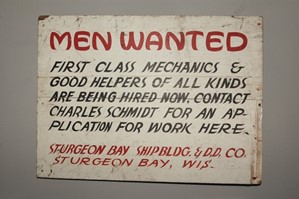
There’s no question that the pandemic has drastically changed the workforce in the United States this year, and Wisconsin hasn’t been immune to the harsh consequences of a nationwide labor shortage. Businesses are struggling to adequately staff, unemployment rates remain high, and many labor unions are striking for better wages.
State and federal leaders are trying to pass legislation to keep businesses open and Americans working, but what are Wisconsin businesses and lawmakers doing to help the state’s economy?
Attorney Naomi Soldon provides an update on what the workforce and labor landscape is currently looking like for Wisconsinites.
Addressing the National Labor Shortage
Businesses in Wisconsin are struggling to hire enough employees to keep their operations afloat as job candidates are becoming more selective. This is largely due to the phenomenon known as the “Great Resignation,” where employees are leaving their jobs in record numbers.
The United States Bureau of Labor Statistics has estimated that 97,000 people quit their jobs just in the month of August in Wisconsin. Job openings in the month of August totaled 214,000, which is well above what they were pre-pandemic in 2019.
Due to the volatility of the job market, state leaders now have to decide how to proceed with allocating funds received from the American Rescue Plan, which was signed by President Joe Biden earlier in the year. The plan is intended for small businesses to have another round of the payment protection program, along with emergency advance grants with a focus on grants for restaurants and live venues. They will also receive an employee retention tax credit in an effort to relieve small businesses struggling as a result of the pandemic.
Still, those restaurants and other businesses struggling to find employees must find a way to make their positions more alluring to potential candidates. In Wisconsin, these strategies include increasing pay and offering more robust benefit packages.

Tackling Unemployment Rates
Wisconsin’s unemployment rates remain at 3.9 percent for the sixth month in a row. The expiration of the enhanced federal unemployment benefits (which expired on September 6th) has not had an effect on those numbers.
The Wisconsin Assembly recently voted for a bill to block additional federal unemployment benefits. The GOP was unable to wrangle the two-thirds votes necessary to pass the threshold that would override the veto from Democratic Governor Tony Evers. Evers suggested that people who lost jobs during this past year in the pandemic need a “lifeline” to support them in taking steps to re-enter the workforce.
In debates on the matter, Wisconsin Republicans argued that extra money makes it too easy for people to continue being unemployed; although their argument is faulty given the fact that the numbers have not changed since the benefits ended. The GOP proposes overhauling the current unemployment system in the state to a system that focuses on what they say would be re-employment. They are suggesting drug testing individuals who are claiming unemployment benefits and providing cash payments to businesses that successfully hire employees who have collected benefits for more than 27 weeks.
Extending Work Hours For Teens
Amid labor strikes and walkouts when many labor union workers are lawyering up to advocate for fair wages, reasonable rest, and safer working conditions, it comes as no surprise that Wisconsin Republicans have passed a bill that allows 14-year-olds to work as late as 11 PM. Wisconsin had previously stuck to federal child labor laws which prevent teens under the age of 16 from working past 9 PM from June through Labor Day, or past 7 PM for the remainder of the year.
Those in favor feel it is an answer to the state’s labor shortage and will help fill the labor gaps during peak seasonal rushes when small businesses have trouble finding employees to work odd hours. Some claim that businesses that hire young people are forced to close early because their young staff cannot work late at night.
Those in opposition to the bill feel that children should focus on school and homework rather than working longer hours. They also express concern for the inherent risk of curfew violations if the bill is passed.
The law would only apply to workers who are not covered by the Federal Fair Labor Standards Act. This includes people who make less than $500,000 a year and people who do not engage in interstate commerce. Although tourism lobbyists are in favor of the bill, the Wisconsin AL-CIO, which is a federation of unions, opposes the bill.
Conclusion
Although Wisconsin is working towards getting people back to work, the workforce is still in a state of flux throughout the state.
New bills are being passed to keep businesses staffed and stimulate the economy. It is sad that the Wisconsin Republicans’ answer to the labor shortage is to increase child laborers. Instead, requiring better wages and improved working conditions would increase the adult workforce and benefit the state as a whole.
